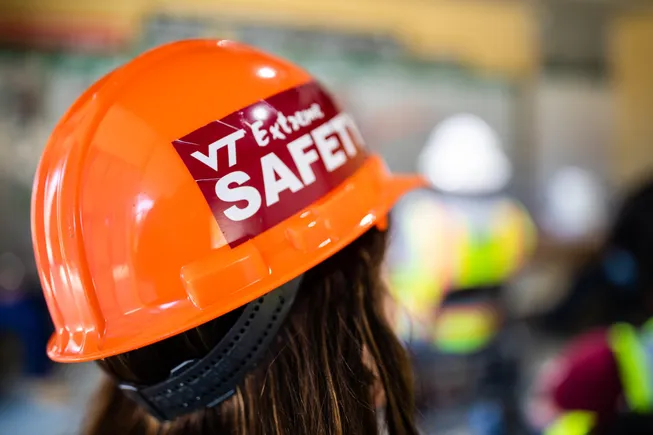The Myers-Lawson School of Construction, part of Virginia Tech’s College of Engineering, has introduced a new major to help shape the industry’s future safety leaders.
The new construction safety leadership program, a bachelor’s in science at the Blacksburg, Virginia, university started admitting students in May and the inaugural cohort could graduate as soon as May 2025.
The new major came out of rising industry demand for construction engineers with a safety-focused mindset, said Brian M. Kleiner, professor and director for the Center of Innovation Safety, Health and Well-being at the Myers-Lawson School of Construction.
“Our industry advisory board was instrumental in driving the need for students equipped to lead safety, whether as safety professionals or as safety-minded project managers or superintendents,” he said.
The only other school in the mid-Atlantic region with a safety degree is Slippery Rock University in Slippery Rock, Pennsylvania, said Kleiner, and that is “very-rule based, focusing on OSHA regulations, for example.” By contrast, the Virginia Tech major will focus on leadership skills and knowledge, placing the regulations within the context of leadership.
The construction industry faces numerous safety challenges that the program aims to address, Kleiner said. For hazard protection, that means highlighting OSHA’s Fatal Four on jobsites and continuing to advocate for safety and prevention.
“On the leadership side, [the major focuses on] creating a culture where safety is not seen as a cost-prohibitive negative but a productivity-promoting element that brings workers home safe each night,” Kleiner said.
Safety, leadership and studies
The students will take five core courses as part of the program, beginning with CEM 2714: Construction Safety Systems, which offers an introductory look at construction safety and its importance in the industry.
The other courses include:
- CEM 3164: Construction Health and Safety, which explores the regulations, standards and laws established by governing agencies to protect workers.
- CEM 3714: Controlling Construction Safety Hazards, which examines the cognitive processes involved in recognizing and managing safety hazards on construction sites.
- CEM 4714: Construction Safety Culture, which investigates ethical safety practices within the context of construction culture, climate and organizational leadership.
- CEM 4724: Construction Industry Futures: Safety, Health and Wellness, which evaluates the future of the construction industry through the perspectives of safety, health and wellness.
“The key skills students will acquire through this program include hazard recognition and identification, motivating others to be safety-minded and leadership skills and knowledge,” Kleiner said.

Brian M. Kleiner
Permission granted by Virginia Tech
Plus, all courses have industry engagement and are project/experientially based. When it comes to getting work experience, Kleiner said students will be better prepared and more likely to seek out internships with a strong safety component, and, with the major in place, he believes recruiters will be more likely to create those positions.
Jacob Kmieciak, a construction engineering and management student of the program, was interested in taking part because he felt the degree would be a high-value commodity in the workplace and the skills gained from it would translate to better positions and possibly higher pay.
“I feel it will prepare me for the construction industry by allowing me to gain another diverse and useful skillset that can be applied to anything I do now as a student, intern, future graduate or as a future engineer,” he said. “Safety is what we make of it; the goal is the same for everyone: Get home safely. And now with this new major, we can hopefully make something more of it with all the technology and clever, caring individuals working on a solution.”
Kmieciak said that in his classes, students work toward gaining their OSHA-10 certification through studying and multiple examinations, and also gain more background on what safety systems exist to help reduce workplace accidents.
“I think this new major will drastically change the way students go into the construction industry,” he said. “For starters, having your OSHA-10 certification makes you a valuable asset to any company as it shows your dedication to safety and helps save time and money training new hires. I am excited to see where this will take the safety in the industry.”
Along with the launch of this new major, Virginia Tech, through its Center of Innovation Safety, Health and Well-Being, recently initiated a project focused on improving safety equipment standards, which includes a thorough evaluation of jobsite helmets.
“The initial step is to verify that helmets provide superior protection compared to traditional hard hats,” Kleiner said. “While hard hats are designed solely to protect the head from falling objects, helmets offer more comprehensive safety measures. Ultimately, a rating system will be developed for helmets, based on empirical testing.”

